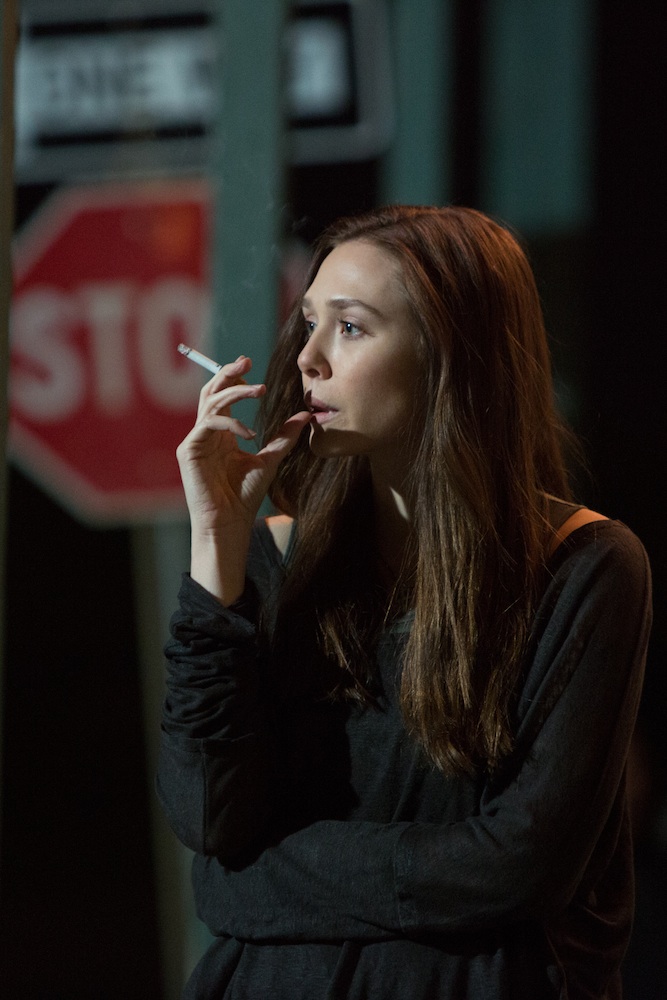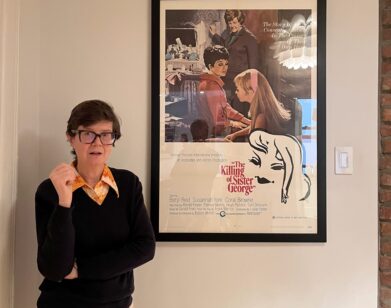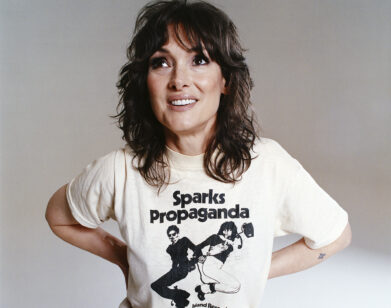New Girl

ABOVE: ELIZABETH OLSEN IN OLDBOY.
In Chan-wook Park’s 2003 cult-classic Oldboy, the second film in his “Vegence Trilogy,” an alcoholic, absent father wakes up to find himself imprisoned in a mysterious cell. There are no explanations, no signs of who might of done this to him. His only access to the outside world is a television set and a tray of dumplings shoved through his door every day.
Earlier this year, Park made his English-language debut with the visceral Stoker. This week, Oldboy will make its English-language debut under the direction of Spike Lee. As expected, Lee’s Oldboy is a translation, rather than shot-for-shot remake of the Korean original. There are still plenty of bloody, hammer-heavy fight scenes and unpleasant plot twists, but the edges are softened: the protagonist (played by Josh Brolin) is imprisoned for 20 rather than 15 years; while in captivity, his daughter Mia, and not the promise of revenge, is his source of solace.
“I wasn’t cast right off the bat,” admits Elizabeth Olsen of her role in Lee’s film. “I read our script and then I saw the original film.” Olsen plays Marie Sebastian, a recovered drug addict-turned-nurse who pledges to help Brolin’s character find his daughter. “It was all very collaborative,” Olsen explains, “Spike immediately would ask, ‘Do you want to change this line? Do you want to change this background point of view?'” she continues. “We did rehearsals for a couple weeks and we just sat around a table—me, him, and Josh—and we just read through every scene and rewrote scenes.”
EMMA BROWN: Had you ever worked in such a collaborative environment before?
ELIZABETH OLSEN: Not a lot. But with Spike, because he has so much experience, he feels more confident collaborating. It’s amazing that, to a certain extent, his experience in film has made him a better collaborator.
BROWN: Some of the scenes in the movie are quite violent or emotionally trying. What was the most difficult scene to film?
OLSEN: Probably the scene where I’m attacked. I haven’t thought about it in a while because, in hindsight, you make jokes about it and you get funny stories from it. When I was talking about it earlier today, I started to realize that it took a couple days probably to get over. Even if you can laugh about it, it’s still the physical things that your body has to go through, it’s pretty insane.
BROWN: Did this movie put you off dumplings?
OLSEN: A little bit. I will eat them, but the idea of them just now has a different meaning. [laughs]
BROWN: Like Matilda and chocolate cake.
OLSEN: Exactly.
BROWN: What do you like about being an actor?
OLSEN: I like being able to play make believe as my job. I think I played make-believe growing up a little too long—probably to an inappropriate age. I played make-believe until I was, like, 13 and probably should have been doing something else. But other than that, it’s fun to be able to have to learn about different people. My favorite thing is you have to learn how to work with people that you probably would never try [to]. Some people just aren’t supposed to be in a room together, and you have to be in a room with a group of people who might not all get along and you have to figure out how to come together for one thing. That collaboration is special, and people don’t get to exercise that. I think that’s why people become stubborn, and I think that’s why people become uninspired to change. In this job you have to.
BROWN: I also played make-believe, and I had older siblings who told me I’d be socially ostracized if I continued.
OLSEN: [laughs] Thank you. In my acting class there was this acting exercise going on, and I remember asking a buddy, “Do you ever do this at your apartment when no one’s home? Do you ever act out these hypothetical moments?” And he goes, “No, Lizzie, because that’s called crazy.” Whatever, I was 20 and doing it so who cares.
BROWN: Is there anything you wish you’d known before you started acting?
OLSEN: Yes. [laughs] I feel like I don’t even know that much now. I think every time you start a job, it’s good to remember that everyone’s kind of in the same boat, no one knows what they’re doing. Everyone thinks that they don’t know what they’re doing.
BROWN: Do you ever dream about your work?
OLSEN: Yeah—a recurring dream the crew is in my bedroom and they’re trying to get one last shot of me sleeping. It happens all the time.
BROWN: When you read a script that you like, is there anyone you consult about whether or not you should do the film?
OLSEN: I talk to my boyfriend a lot about that.
BROWN: People can get quite incensed about remakes. Is there a film that you hope that they never remake?
OLSEN: Gone with the Wind. No one should ever do that. I think it’s the stupidest thing anyone could ever do.
OLDBOY COMES OUT IN WIDE RELEASE TOMORROW, NOVEMBER 27.






